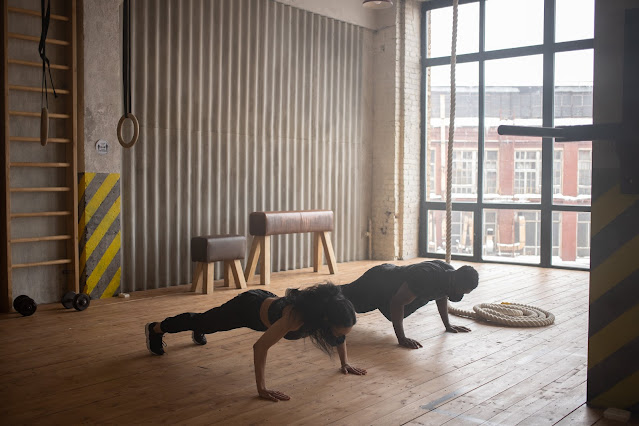Why Exercise is Key to a Long and Happy Life l Daily Health Idea
Why Exercise is Key to a Long and Happy Life
What have to we do to live a long wholesome lifestyles? Research suggests that there are certain life-style interventions which could effectively lengthen our lives and health.
One of them is
exercise, but what kind, and in what ways, and why does it add years to our
lives?
 |
| Why Exercise is Key to a Long and Happy Life l Daily Health Idea |
Seemingly since time
immemorial, man has, metaphorically, been searching for the path that leads to
the “fountain of youth”—ways to ensure a long, healthy life.
And while we may not yet
benefit from any "miracle" drugs or technology to extend our lives
beyond a hundred years, many recent studies have provided strong evidence to
support the notion that simple, Achievable lifestyle changes can help us. Stays
healthy longer and reduces the risk of premature death.
For example, research
presented at the American Heart Association's Scientific Sessions 2023
suggested that eight healthy habits can reduce biological lifespan by up to 6
years.
These habits are associated with food regimen, preserving a healthy weight, heading off tobacco, maintaining suitable sleep hygiene, controlling cholesterol, blood sugar, and blood stress, and being physically energetic.
In the today's episode of our In Conversation podcast, Medical News Today explores the connection between exercise and residing a protracted, healthy lifestyles, in communique with Dr. Borja del Pozo Cruz and Dr. Edwina (Eddie) Brocklesby.
What type of exercise reduces the risk of death?
In a have a look at posted in August 2023 in JAMA Internal Medicine Trusted Source, Dr. Del Pozo Cruz and associates analyzed statistics from 500,705 individuals who had been accompanied up for a median of 10 years to peer which Similarly, extraordinary kinds of exercising are associated with someone's hazard of dying.
The take a look at looked at the results of mild cardio physical pastime, together with on foot or light cycling, full of life cardio physical interest, such as jogging, and muscle-strengthening pastime along with weight lifting.
His findings indicated that a balanced aggregate of a lot of these forms of workout worked first-class to reduce the risk of loss of life.
Specifically, approximately 75 minutes of mild cardio exercising, plus more than 150 mins of full of life exercise, plus at least energy training classes per week were associated with a lower threat of all-reason mortality.
When it involves lowering the hazard of demise especially related to heart disorder, Dr. Del Pozo-Cruz and colleagues endorse at the least 150-225 mins of mild physical activity, with about 75 minutes Combined with energetic exercising, and or greater power education periods. Classes in keeping with week.
 |
| Why Exercise is Key to a Long and Happy Life l Daily Health Idea |
How Little Exercise Is Enough?
But what about people who are not almost as athletic? What is the minimum "quantity" of exercising that could assist prevent some of the most risky health conditions?
Dr. Del Pozo Cruz and his crew may additionally have discovered the answer to this query. In December 2022, they published the consequences of the preceding observe inside the European Heart Journal.
The examine suggested that simply 2 minutes of lively exercising an afternoon ought to help lessen the chance of demise from most cancers or cardiovascular disease.
The researchers found that study contributors who never exercised vigorously had a 4 percentage hazard of dying inside five years, however folks that exercised much less than 10 mins according to week cut that hazard in half. What's greater, the danger of loss of life became cut in 1/2 once more for people who exercised at least 60 minutes per week.
Is any physical activity good?
In our podcast, Dr. Del Pozo
Cruz emphasizes that almost any amount of exercise is better than none, and a
new study reinforces that any activity is better than a sedentary lifestyle.
Better for heart health than life.
However, he also cautioned that work or paintings-related physical hobby, in place of exercise in a leisure context, can on occasion do greater damage than exact.
Again, this idea is supported via recently published research, which located a hyperlink among physically stressful occupations and a higher hazard of cognitive impairment.
Some of the most common occupations associated with vigorous bodily pastime defined inside the observe had been nursing and caregiving, retailing, and farming, where humans are on their toes plenty, and regularly ought to deal with stressful situations.








Post a Comment